Criminal trespassing occurs when a person enters or remains on a property without the owner’s consent. Usually for a person to be guilty of criminal trespassing, they would have to have intent. A person may have a defense if the evidence shows that they had reasonable belief that the owner consented to entering or remaining on the property, they didn’t substantially interfere with the owner’s use of the property, and they left immediately upon request.
If you’ve been arrested for trespassing in Nashville or the surrounding areas, contact PNC Law for a free consultation.
Types of Trespassing
There are different penalties for different types of trespassing. A person could be arrested for Criminal Trespassing, Aggravated Criminal Trespassing, and Trespassing by Motor Vehicle.
As mentioned earlier, criminal trespassing is when a person enters or remains on a property without the owner’s consent. However, if a person were to break a lock or destroy a fence in order to enter a property they could be charged with aggravated criminal trespassing.
Trespassing by motor vehicle is defined in Tenn. Code 39-14-407 as follows:
(a) Any person who drives, parks, stands, or otherwise operates a motor vehicle on, through or within a parking area, driving area or roadway located on privately owned property which is provided for use by patrons, customers or employees of business establishments upon that property, or adjoining property or for use otherwise in connection with activities conducted upon that property, or adjoining property, after the person has been requested or ordered to leave the property or to cease doing any of the foregoing actions commits a Class C misdemeanor with no incarceration permitted. A request or order under this section may be given by a law enforcement officer or by the owner, lessee, or other person having the right to the use or control of the property, or any authorized agent or representative thereof, including, but not limited to, private security guards hired to patrol the property.
The above only consists of short, general descriptions of the laws on trespassing. Schedule an appointment with attorney, Philip N. Clark to find out more, and to start building your defense. You can also review the laws for more information at the following links:
Section 39-14-405 (Criminal Trespass)
Section 39-14-406 (Aggravated Criminal Trespass)
Section 39-14-407 (Trespass by Motor Vehicle)
Get your 100% FREE initial consultation!
Trespassing Penalties
Criminal trespass and trespass by motor vehicle are Class C misdemeanors. It should be noted that trespassing by motor vehicle does not permit incarceration. The penalties for a Class C misdemeanor include not more than 30 days in jail and a $50 fine.
Aggravated criminal trespass is a Class B misdemeanor unless it was committed in a habitation, in a building of any hospital, or on the campus, property, or facilities of any private or public school, in which event it is a Class A misdemeanor.
Penalties for a Class A misdemeanor include up to 11 months, 29 days and/or a maximum fine of $2,500.
The penalties for a Class B Misdemeanor include not more than 6 months in jail and a $500 fine.
Start Building Your Defense
Attorney Philip N. Clark has years of knowledge and experience serving both sides of the justice system as an attorney and former police officer. Attempting to navigate the justice system on your own might not result in the outcome you’re looking for.
Connect with Philip N. Clark right away!
(615) 785-2000

